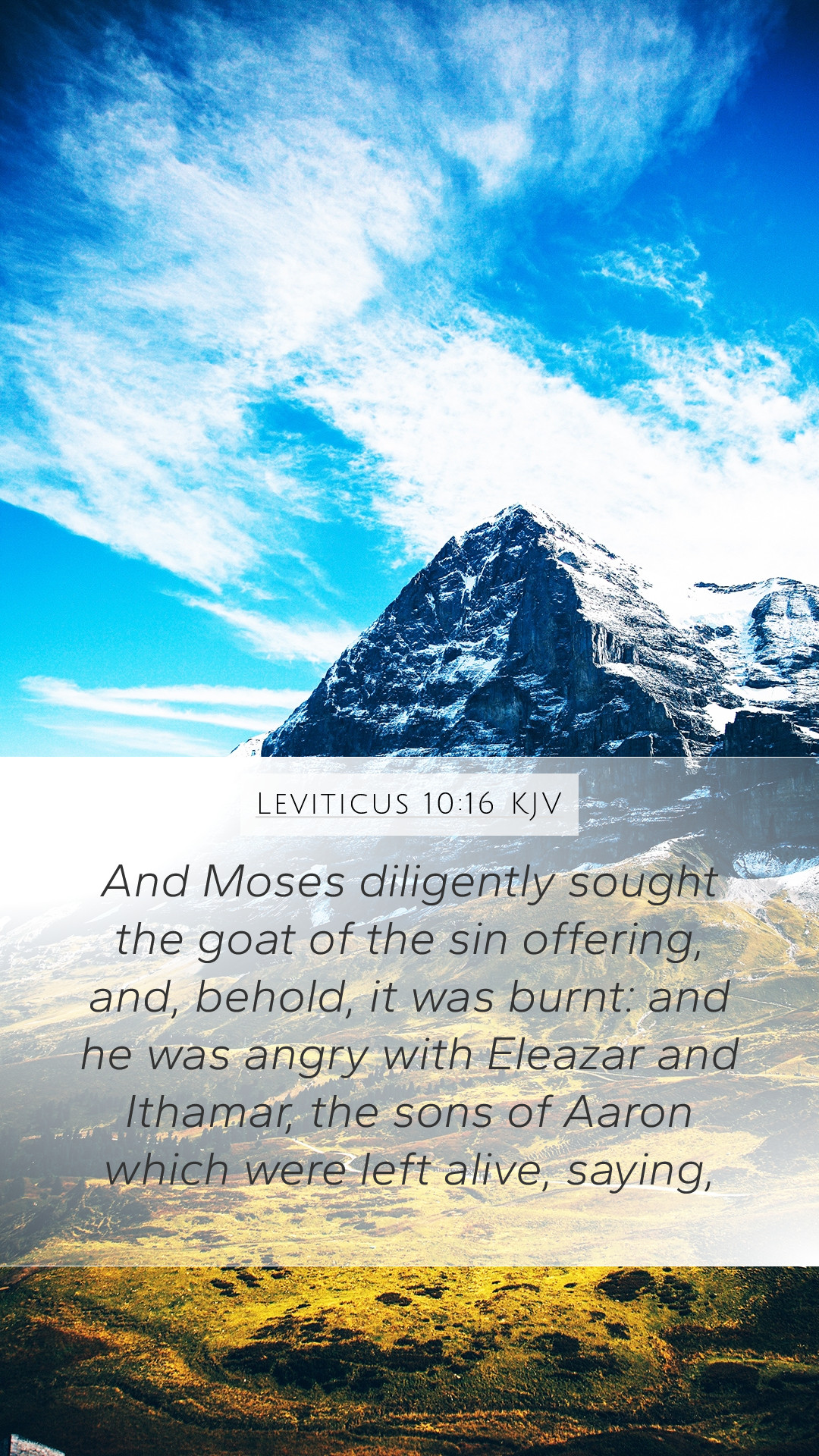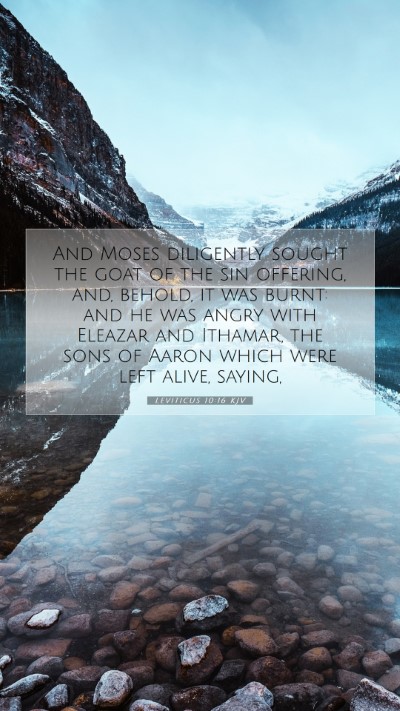Understanding Leviticus 10:16
Leviticus 10:16 states: "And Moses diligently sought the goat of the sin offering, and, behold, it was burnt: and he was angry with Eleazar and Ithamar, the sons of Aaron which were left alive, saying," (KJV).
This verse draws the reader into a significant moment in the aftermath of a tragic event involving the priests, Nadab and Abihu, who had offered unauthorized fire before the Lord. The context highlights themes of obedience, the holiness of worship, and the responsibilities of the priesthood.
Key Insights from Biblical Commentaries
Matthew Henry emphasizes the importance of observance of God's commands and the gravity of presumption in the ministry. Moses' anger arises from the failure to properly conduct the sin offering, which was a critical element of atonement in ancient Israel.
Albert Barnes suggests that the sin offering represents the need for atonement for sins that were committed, intentional or not. The failure to offer the proper sacrifice not only affected the individuals but the entire community's standing before God. Barnes highlights that the error observed by Moses pointed to the seriousness with which the Lord holds the ministry.
Adam Clarke expounds on the emotional reaction of Moses. His search for the goat of the sin offering demonstrates the diligence required of God's leaders, reflecting the urgency and weightiness of maintaining ritual purity and the sanctity of offerings. Clarke notes that such moments serve as a warning to all in positions of spiritual leadership about the ramifications of neglecting God’s ordinances.
Thematic Elements
- Obedience to God: This passage stresses the necessity of adhering strictly to God's directives; failure to comply leads to divine displeasure.
- The Role of the Priesthood: The responsibilities entrusted to priests are significant. Their actions directly influence the spiritual state of the nation of Israel.
- Consequences of Sin: The sin offering symbolizes the seriousness of sin's consequences and the need for atonement.
Application for Today
Understanding this verse compels modern readers and members of Bible study groups to reflect on their obedience to God's commands in worship and daily living. It pushes for a deeper Bible study analysis on how to foster reverence and meticulousness in how we approach God in our spiritual practices.
The lessons gleaned from Leviticus 10:16 remind believers that while grace is paramount, there remains an expectation for honor and respect toward God's holiness. This verse becomes a call to reflect on personal worship practices and the integrity of our spiritual lives.
Related Scripture References
- Leviticus 10:1-2: The account of Nadab and Abihu, serving as a backdrop to the need for proper worship.
- Exodus 30:10: Discusses the offering for atonement and its significance.
- Hebrews 5:1: Highlights the role of priests and their responsibility to make offerings for the people.
Conclusion
Leviticus 10:16 serves as a potent reminder of the sanctity of worship and the critical role of spiritual leaders in ensuring that God’s ordinances are upheld. The interpretation of this verse, along with insights from earlier commentators, enriches one's understanding of how to honor and serve the Lord within the community of believers and through personal devotion.


